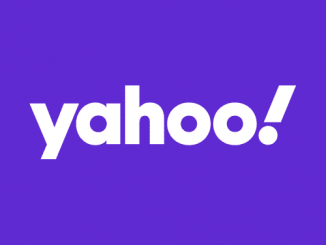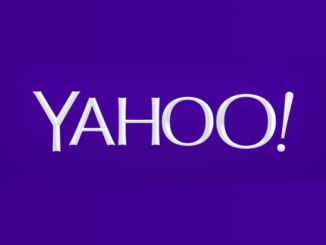[ad_1]
This article is a preview of The Logic’s Daily Briefing newsletter, sent every weekday. Sign up for a free trial.
It’s day 105 since Canada’s 100th coronavirus case. The number of cases is 101,903 as of publication time, up 266 since yesterday—a 14 per cent decrease from the seven-day prior average of 310 new cases. At its peak on May 3, the seven-day average was 1,603 new cases a day.
More than 29,000 people across 140 countries have volunteered so far to be infected with the coronavirus through 1DaySooner, an online recruitment organization.
“The engine of innovation”: U.S. tech giants including Alphabet, Apple and Amazon criticized President Donald Trump’s move to freeze a U.S. skilled-visa program widely used by Silicon Valley, arguing immigration has contributed significantly to the country’s economy. Canadian firms and executives have responded by advertising open positions and encouraging foreign workers who are in the U.S. or were hoping to move there to apply here instead.
Kaz Nejatian, general manager of Shopify’s financial solutions division, registered an engineer-focused domain that redirects to the e-commerce giant’s careers page, which currently lists 42 open positions.
Several tech firms that are continuing to hire despite the pandemic are also looking to recruit among those affected by the U.S. action. Telehealth firm Dialogue, textile computing startup Myant, international student recruitment platform ApplyBoard, and fintech Wave have all encouraged such workers to consider their job openings. “This is positive for Canadian companies,” said Louis Têtu, CEO of Montreal-based AI company Coveo. “We can keep [and] attract R&D workers.”
In contrast to the U.S., Canada’s immigration system has adapted to the COVID-19 crisis, said Robin Seligman, a Toronto-based immigration lawyer, citing changes to physical-presence eligibility criteria for international students who will later apply for work permits, as well as biometric-collection rules.
The visa programs Trump is freezing are used by very highly skilled immigrants, Mikal Skuterud, a University of Waterloo economist, told The Logic. “These people are the engine of innovation,” he said. “Why would you want to close the door on that?”
The Logic will have more on the executive order and its implications for Canada later this evening.
In the markets: All major North American indices closed up as a number of improving economic signals outweighed concerns of growing international trade restrictions.
The Office of the Superintendent of Financial Institutions, Canada’s banking regulator, kept the domestic stability buffer for the largest banks at one per cent. The Canadian dollar fell to 73.76 cents U.S. in late afternoon trading. The federal government said it’s ready to push back if Trump follows through with his reported plan to impose a 10 per cent tariff on Canadian aluminum. Asian markets fell sharply after White House trade adviser Peter Navarro said the China trade deal was “over,” before rebounding following a tweet from Trump that the China trade deal was “fully intact.”
U.S. private-sector business activity improved for the second month straight in June while new-home sales jumped in May. Purchasing managers indices for the European Union as well as France, Germany and the U.K. rose more than economists had expected. The World Trade Organization said its worst-case scenario for global trade will likely be avoided this year, but that merchandise trade likely still dropped 18.5 per cent in the second quarter. The German Council of Economic Experts, however, predicted that the economy of euro-using nations will drop 8.5 per cent, ahead of the 7.75 per cent drop predicted by the European Union’s executive commission.
“We organized the tournament at the moment when the virus has weakened, believing that the conditions for hosting the Tour had been met. Unfortunately, the virus is still present, and it is a new reality that we are still learning to cope and live with”: After he organized a widely criticized exhibition tournament, the world’s top-ranked male tennis player, Novak Djokovic—who is opposed to a compulsory coronavirus vaccine—tested positive for COVID-19 along with his wife, three other players and two coaches.
Cross-country checkup: Canadian Blood Services is seeking recovered COVID-19 patients in Saskatchewan to donate plasma to help develop a treatment for the virus. Just six people from the province have volunteered for the countrywide study since it was announced in May. The Manitoba government will pay people returning to work up to four payments of $500. Ontario reported an uptick in new COVID-19 cases on Tuesday, despite a drop in testing. Nova Scotia marked its second full week without a new COVID-19 case. P.E.I. is preparing to start Phase 4 of reopening on Friday, which includes allowing indoor gatherings of up to 50 people separated into two groups. A new poll shows two-thirds of Canadians aren’t ready for looser physical-distancing rules. This B.C.-based theatre group will put on pop-up plays outside your home upon request.
Bay Street to Main Street: Canada’s provincial securities regulators are working closely to try and stop market manipulation and insider trading related to COVID-19. “The collaboration since the pandemic has been tremendous on all fronts,” said Canadian Securities Administrators chair Louis Morisset. The 13 provincial and territorial watchdogs have an occasionally tense relationship partially due to attempts to create a national regulator. Later this year, they will launch a centralized repository of market and broker data to help cross-jurisdictional enforcement.
- Hamilton, Ont.’s Fusion Pharmaceuticals is looking to raise as much as US$153 million in a public listing on the Nasdaq.
- Workers at a Nova Scotia firm are assembling face shields at home in a bid to maximize physical distancing.
- Edmonton-based Aurora Cannabis is shutting down five facilities and laying off a significant number of workers.
- Airlines are facing growing pressure to refund customers for unused flights, including calls from MPs and a number of proposed class-action lawsuits and court actions.
- Quebec is considering investing in shoe chain Aldo, which is currently restructuring.
- The federal government is extending the time period employers have to recall their workers who were temporarily laid off due to COVID-19.
- The Ontario Securities Commission appointed Wendy Berman, a partner at law firm Cassels Brock & Blackwell, as its new vice-chair. Cathay Singer, a partner at Norton Rose Fulbright Canada, will serve as a part-time commissioner.
- Ontario’s advanced manufacturing supercluster is investing over $6 million in three firms working on COVID-19-related projects.
- Markham, Ont.-based Lind Equipment has signed a deal with the federal government to test UV sanitizer technology designed to decontaminate work areas.
- Windsor’s employment rate fell by 19.1 per cent, the highest drop in Ontario, according to a report from the Financial Accountability Office of Ontario.
Crowdsourcing the crisis: Prosper Canada has launched the Financial Relief Navigator, a one-stop portal for COVID-19 emergency benefits and financial relief being offered by public and private institutions. A team of researchers and students at Brown, MIT, Harvard and others have created COVID Explained to answer any questions you may still have.
Trace me on my cellphone: France’s contact-tracing app, which does not use Apple and Google’s technology, has been actively used by over 1.8 million people, but has only sent 14 notifications over the past three weeks; “tens of thousands” of people have already uninstalled it and only 68 users have declared being diagnosed COVID-19-positive by the app. Just three days after launching, Japan has temporarily shut down its app to fix glitches that accepted “processing numbers” that weren’t issued by health-care facilities.
In the lab: French drugmaker Sanofi has partnered with U.S. biotech company Translate Bio in a US$2-billion deal to make vaccines. Sanofi expects approval for the vaccine it is developing with Britain’s GlaxoSmithKline in the first half of 2021. Inovio has received a US$71-million investment for the U.S. Department of Defense to scale up production of its vaccine-injection devices. China has approved Chongqing Zhifei Biological Products’ vaccine for human testing. The University of Oxford will begin human trials in Brazil this weekend. South Africa will begin a coronavirus vaccine trial tomorrow with 2,000 volunteers, including some living with HIV; this is the first such trial in Africa. Dr. Anthony Fauci, the White House’s top infectious-disease expert, believes “it will be when and not if” there will be a vaccine.
Meanwhile, new research by scientists in India and the U.S. shows that women face a higher risk of dying from the coronavirus than men. A French study suggests school children may not transmit the virus to others. British scientists say a vaccine may not be effective in older people, who are most at risk of getting seriously ill or dying. The University of Illinois will test its students for COVID-19 with a saliva test developed on campus. A Japanese supercomputer that has been named the world’s fastest is being used to identify potential coronavirus treatments.
Drinking from the firehose:
- Disney Plus is expanding into eight new markets in Europe, buoyed by an uptick in viewers during the pandemic.
- Cloud computing company Fastly has overtaken Zoom Video Communications as the best-performing work-from-home stock; its share price has gained 222 per cent since February 19 compared to Zoom’s 159 per cent gain.
- More than 100 U.S. members of Congress are urging the Trump administration and the Federal Reserve to pause mortgage payments for struggling businesses.
- A Florida-based transportation and logistics company is under fire for collecting government aid despite an uptick in business during the pandemic.
- About 2.2 million restaurants worldwide are on the verge of collapse, according to food and hospitality industry consultancy firm Aaron Allen & Associates.
Around the world: The European Union may bar Americans from entering the bloc. U.S. President Trump reportedly supports sending Americans another round of stimulus cheques. The news comes in the wake of a Ceridian study that found 55 per cent of Americans struggled to cover their expenses between pay periods over the past six months. A Brazilian judge has ordered President Jair Bolsonaro to wear a face mask or face fines, saying, “The president is constitutionally obliged to follow the country’s existing laws, as well as promote the wellbeing of the population, which means taking the necessary measures to … prevent the propagation of a virus that is spreading rapidly and often silently.” India’s Supreme Court ruled that one of the country’s biggest religious processions could go ahead in a “limited way.”
Share the full article!
Thanks for sharing!
You have shared 5 articles this month and reached the maximum amount of shares available.
This account has reached its share limit.
If you would like to purchase a sharing license please contact The Logic support at [email protected].
Share the full article!
Share the full article with your friends. Recipients will be able to read the full text of the article after submitting their email address. They will not have access to other articles or subscriber benefits.
You have shared 0 article(s) this month and have 5 remaining.
x
Meanwhile, schools in Thailand are holding rehearsals to prepare students for next week’s return: children queued for temperature checks and practised eating behind screens. Saudi Arabia has curtailed the Hajj pilgrimage, which usually draws up to 2.5 million Muslims worldwide, to a “small and very limited” number of people. An absence of new movie releases means Steven Spielberg’s 1993 dinosaur-rampage blockbuster Jurassic Park took the number-one spot at the U.S. box office, beating his other blockbuster Jaws. Visitors returning to Tokyo Disneyland on July 1 have been instructed not to scream or hug Mickey Mouse.
“Homemade”: Netflix will release a collection of short films next week made by filmmakers around the world, with help from family members and whatever equipment they have at home. You can watch the trailer here.
* We’re emphasizing new cases, rather than running totals, because “flattening the curve” is when each day’s new cases are fewer than those of the previous day. The percentage increase is determined based on how today’s cases compare to a rolling seven-day prior average.
***
Our reporting team is working tirelessly around the clock to deliver the very latest information on the COVID-19 crisis. If you like our journalism, please consider subscribing. You can get a subscription today for more than $100 off your first year.
[ad_2]
Source link Google News









